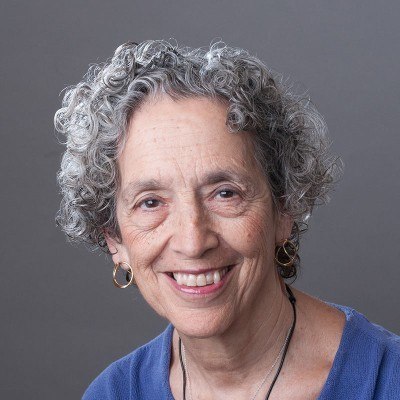This Dvar Tzedek was adapted from Ruth Messinger’s talk for JDOV, a program that invites interesting and creative thinkers to give “the Jewish talk of their life.” Watch the full video of Ruth’s talk here.
Parashat Va’etchanan includes the words of the Sh’ma[1]—a prayer so important, that many Jews recite it twice a day. Our sages are explicit that when we recite the Sh’ma, we must do so with focus, with clarity, and with unity of heart and mind.[2]
The essence of the Sh’ma—the imperative to really listen, to pay attention to injustice, and to mend the brokenness in our world—grounds my life with purpose. The difference between hearing and listening is paying attention, finding and living that elusive element of real connection to the “stranger”—or the other.
I want to share two “Sh’ma moments” in my life when the act of listening intently allowed me to better understand people who are silenced, disempowered, or rendered invisible.
Sh’ma Moment #1: In 1998, after becoming the president of AJWS, I traveled to Zimbabwe to visit an impoverished rural settlement with no government services. I met a teacher working with 80 children outside under a tree and asked him what he wanted most: was it desks and chairs, books, pencils or perhaps a chalk board? He replied, “I don’t need any of those things. I just need the children to have breakfast.”
I had come to Zimbabwe thinking that my solutions were the key to helping Zimbabwean children get a better education. I thought I had all of the answers. But it turns out that the people whom I had perceived as powerless—the people I was trying to help—were the ones who knew best what they needed. They were the ones with the answers, and it was up to me to listen.
Sh’ma Moment #2: Perhaps five years ago, I traveled to Thailand where I met a sex worker for the first time. A 37-year-old mother of three, she very succinctly told me about her life: “These were my options,” she said: “I could be apart from my children for 10 hours each day working in a sweatshop sewing buttons on shirts for $2 a day. Or I could spend the day with my kids and, at night, talk to an interesting Western man, lie down with him for 20 minutes in a familiar, safe place, and make a lot of money. Which would you choose?”
Like many Americans in my generation, I was taught that prostitution is immoral and coercive. Selling sex for money has always been loaded with stigma—and as a feminist of a certain age, I could initially only see sex work as oppression. But in recent years, I’ve heard countless stories from sex workers themselves. When you listen to the story of a sex worker, you begin to understand the difference between a girl or a woman who is forced into trafficking—which is horrific and oppressive to its core—and a woman who sells sex to support her family because she has deemed it her best choice.
I learned in Thailand that these women are much like me: they work hard and they care about their kids. Who am I to believe that these women are any less deserving of physical safety and the right to earn a living—rights that I fully enjoy and have long taken for granted?
Nearly everywhere in the world, sex workers are detained, arrested, fined and driven out of their homes or places of work. In both developed and developing countries, discriminatory policies enable police to rape and beat sex workers and confiscate their money and belongings, including condoms, which increases their risk to HIV and other sexually transmitted infections. I would have never known any of this had I not listened—really listened—to these sex workers’ stories.
These two moments, among many others, opened up my heart and mind to human struggles experienced by “the other.” They exposed hidden injustices that were far from my consciousness. And they show the humanity that’s at stake when global problems like hunger, violence and discrimination go unchecked. But these stories are just two of a universe of stories that too often fall on deaf ears. So, why aren’t we listening?
Rabbi David Wolpe, of Sinai Temple in Los Angeles, once wrote about ‘the bias of the near.’ “Things close to us seem of more importance than things far away,” he explains. “[But] a moral life cannot only be lived with a focus on those next door. Someone starving across the world is as real as someone living beneath the bridge near our own homes. Bias toward the near in people and in time is important and helpful: our family and our lives today are naturally our imminent priorities. To be fully human, however, we must…[have] hope for the future and care for all who suffer, wherever they may be.”
Much of my work, then, at American Jewish World Service is about bridging “the near” and “the far.” But we can only do this well when we listen, really listen, to the stories and struggles of people in the developing world, when we pay attention to their needs.
Rabbi Abraham Joshua Heschel, one of the greatest thinkers in Jewish history, said: “Judaism takes the mind out of the narrowness of self-interest.” In other words, Jewish tradition and Jewish history give us the vocabulary, the values, stories and moral grounding to live our lives with compassion and in deep connection with others; to use the particularity of Jewish experience to understand and work for universal justice.
But we can only live, work, and make a difference this way if we have the humility to listen, to really listen, to pay attention to the other. Sh’ma.
[1] Deuteronomy 6:4.
[2] Rambam, Mishneh Torah, Laws of Reciting the Sh’ma 2:1.

